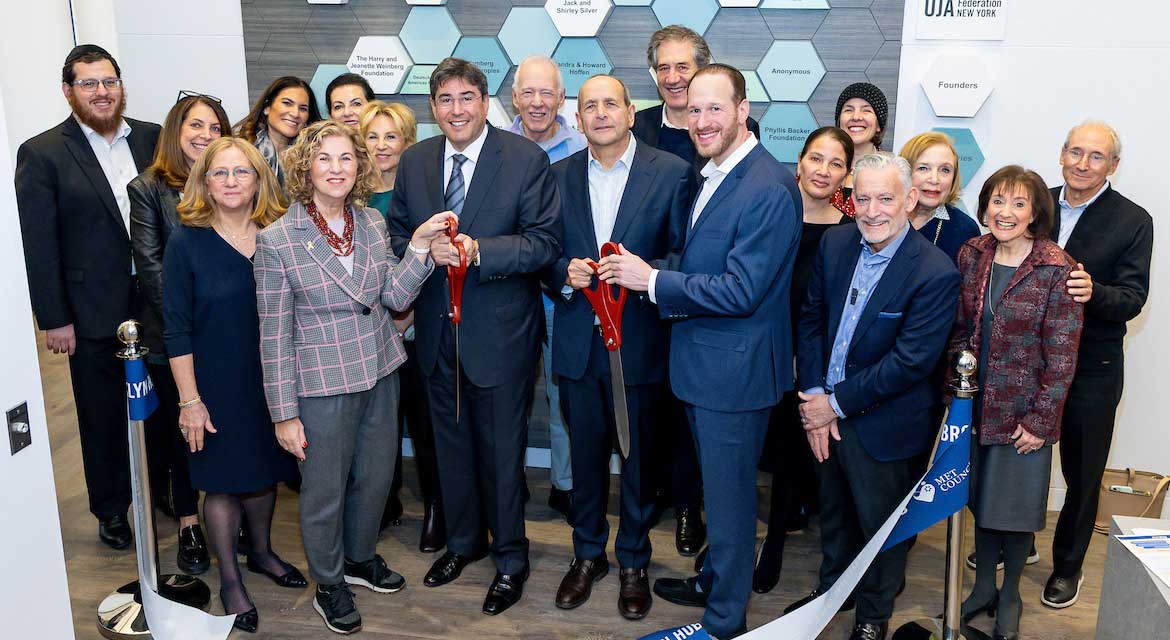Mr. S is a hard-working small-business owner with a shop on Coney Island Avenue. After he’s diagnosed with cancer, he needs to hire help, and the bills start piling up. Suddenly everything he’s built for his family is in danger of slipping away. He may lose his business and his home; he worries for the well-being of his wife and children. Feeling desperate, he seeks help. And the type of help he receives turns everything around, leading him to say this:
“I felt uplifted, respected, and supported.”
But that’s the end of this story. Let’s start at the beginning.
***
Wednesday was a momentous day in the history of UJA-Federation as we officially opened our long-anticipated Brooklyn Hub — a large one-stop social service center on the border of Bensonhurst and Boro Park, two neighborhoods with high concentrations of Jewish poverty.
How the Hub came to life — and how it can change the lives of clients, like Mr. S — is an especially inspiring story to share in these days leading up to Thanksgiving.
The idea for the Hub emerged way back in 2015, when we began envisioning how to mark UJA’s 2017 centennial. Our goal was clear: to honor the first 100 years, but even more importantly, to focus on the future.
We decided to invest more than $100 million in three transformative capital projects corresponding to UJA’s core priorities: creating thriving Jewish life, ensuring a strong and vibrant state of Israel, and caring for the most vulnerable.
The caring project brought us back to our earliest roots. In 1917, when the Federation of Jewish Philanthropies (as we were then known) was founded, its primary mission was to address widespread Jewish poverty. Offering a groundbreaking twist on that legacy, we decided to build Hubs where individuals and families could access comprehensive, life-changing services under one roof, coupled with a cutting-edge online food pantry system.
Here's why this approach matters: By tackling poverty holistically, we create a path to breaking its insidious cycle. Well beyond the wasted time and lost income that comes with trekking from agency to agency to address different needs (food, job readiness, etc.), a Hub offers a complete suite of services, including critically important ones that people might not have initially considered.
Maybe you came in looking for help filling out government paperwork, but you’re clearly hungry. The food pantry can provide immediate relief. Then let’s talk about available classes to land a better-paying job, or financial counseling to make more informed economic decisions. One-stop can change a life.
Just as important as the breadth and quality of services offered, we wanted these spaces to feel welcoming, not stigmatizing. Our Hubs would be beautiful, inviting places where people could feel proud and excited to walk in. Watch here to experience the Hub up close.

